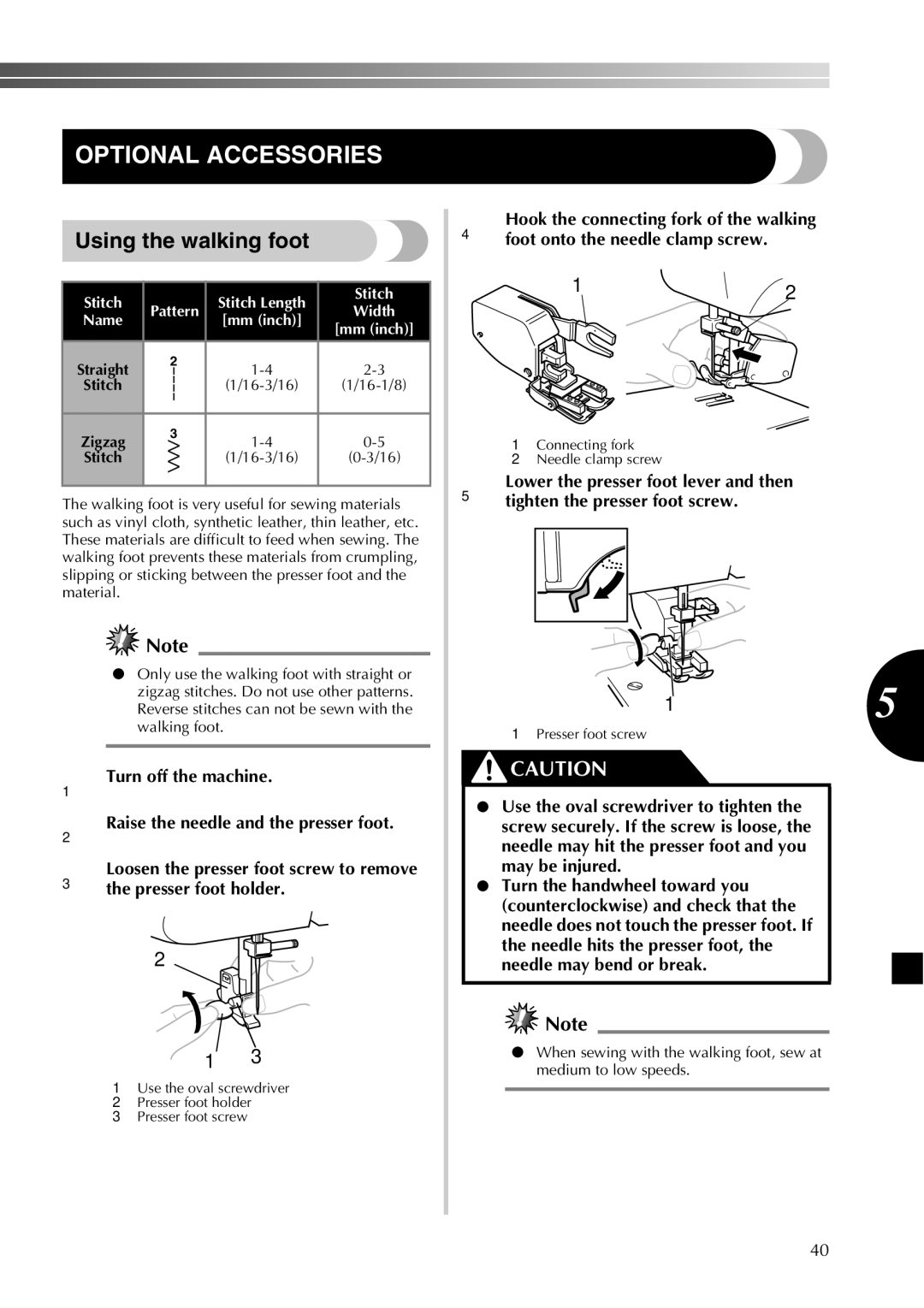
OPTIONAL ACCESSORIES
Using the walking foot
Stitch | Pattern | Stitch Length | Stitch | ||
Width | |||||
Name | [mm (inch)] | ||||
|
| [mm (inch)] | |||
|
|
|
| ||
Straight | 2 | ||||
|
| ||||
Stitch |
|
| |||
|
| ||||
|
|
|
|
| |
|
|
|
|
| |
Zigzag | 3 | ||||
|
| ||||
Stitch |
|
| |||
|
|
|
|
| |
The walking foot is very useful for sewing materials such as vinyl cloth, synthetic leather, thin leather, etc. These materials are difficult to feed when sewing. The walking foot prevents these materials from crumpling, slipping or sticking between the presser foot and the material.
![]()
![]()
![]() Note
Note
●Only use the walking foot with straight or zigzag stitches. Do not use other patterns. Reverse stitches can not be sewn with the walking foot.
1Turn off the machine.
2Raise the needle and the presser foot.
3Loosen the presser foot screw to remove the presser foot holder.
2
1 3
1Use the oval screwdriver
2Presser foot holder
3Presser foot screw
4 Hook the connecting fork of the walking foot onto the needle clamp screw.
1 ![]() 2
2
1Connecting fork
2Needle clamp screw
5Lower the presser foot lever and then tighten the presser foot screw.
1 5
1Presser foot screw
![]() CAUTION
CAUTION
●Use the oval screwdriver to tighten the screw securely. If the screw is loose, the needle may hit the presser foot and you may be injured.
●Turn the handwheel toward you (counterclockwise) and check that the
needle does not touch the presser foot. If the needle hits the presser foot, the needle may bend or break.
![]()
![]()
![]() Note
Note
●When sewing with the walking foot, sew at medium to low speeds.
40
